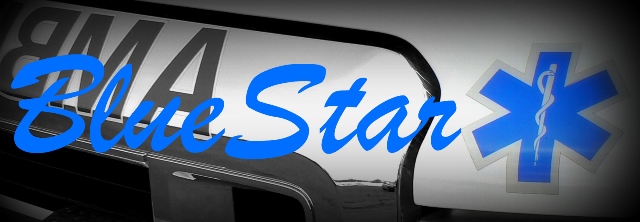Accountability, attitude, and appearance may not be the first three hallmarks that come to mind when considering what makes a “great” pre-hospital care provider. However, should a provider master these three ideals he or she should consider themselves at a good starting point. All three provide a solid foundation to build upon in the journey that is EMS.
Accountability means accepting responsibility for your actions and the consequences of your actions. This means admitting to scraping the side of the ambulance while backing it, leaving a piece of equipment in the (now locked) patient’s home, or forgetting a clipboard with all of your paperwork on a chair at the receiving hospital (yup, I’ve done ‘em all). It also means being proactive in reporting these breaches of responsibility, no matter how minor they seem, instead of waiting for the inevitable call from a supervisor or saying “I don’t know how it got there.”
As bad at it may seem to report these instances, unless you have developed a habit of these lapses, often the worst that happens is a reminder of how to avoid recurrence in the future and a request for written documentation. This is not to say other, more significant action won’t occur, but in my experience unless the error was grievous or repetitive, it will be attributed to “accidents happen.” Taking immediate responsibility for errors, reporting them as soon as practical, and accepting the consequences are hallmarks of upstanding moral character.
In a profession that can be characterized as “messy” even on the best of days, maintaining one’s appearance can be difficult. If you’re on duty right now, take a look in the mirror and ask yourself, “If this person was coming into my home, how would I feel about them?” Uniform codes in EMS are rapidly changing. When first beginning my EMS journey, many of the members of my first Corps still wore white pants. Today, there’s a variety of options being used, from t-shirts to “Class A” uniform shirts complete with badges and name tags. Regardless of how you feel about a particular uniform code, your decision of what to wear should be in compliance with that code and paint you as a trusted provider of medical care. Uniforms should be clean, free of holes and stains, pressed (if needed), and boots should be polished. It’s also a good idea to have a spare uniform available for changing into if needed.
Attire is only one part of your appearance, however: hygiene is also important. This is dirty, smelly work, and we often become dirty and smelly doing it. Consider it collateral damage. However, reporting to work showered and well-groomed will help delay some of that damage and prevent your colleagues from wearing respirators while working with you. Consider this checklist of details: are your fingernails clean? How’s your breath smell at 3:00am? Does your shirt bear witness to the hot dog cart lunch you wolfed down? Are your boots covered in mud while walking across a new carpet? Before going on duty, take a minute to look in the mirror. Looking professional goes a long way toward acting professional. Oh, and one more point: appearing calm and composed even though you’re racing inside goes a long way to instilling confidence in your patients.
How’s your attitude lately? What about that of your friends and colleagues? Spending more time complaining about the problems of this job than trying to do something about them is about as productive as bailing out a boat with a fishing net. Everyone likes a good gripe once in a while. In fact, a former mentor of mine used to call it “pulling the vent card.” But venting and complaining too much gets you one thing: a bad reputation.
All professions have their problems, and EMS is no exception. Instead of griping about the “BS lift assist” or nursing home call, consider the reasons these calls occur. At the present time, who better to respond to persons who fall in their homes and need help getting back up? Why not send personnel trained in recognizing and treating injuries that may have occurred during the fall? As for nursing homes, did you realize that most of these facilities have policies in place that require their patients be sent out for evaluation, no matter how minor the complaint may seem? Regardless of how you feel about the facilities, they have rules and regulations to follow, just the same as us.
It is also important to recognize that not everyone you encounter is going to be having a peachy day. In today’s current environment, nearly everyone you meet is stressed, whether or not they admit it. Long hours, multiple jobs, financial difficulties, or just having a general bad day are all reasons the triage nurse might roll her eyes when you walk in for the third time today, or why your partner has a really sour look on his face. Remember: when you’re performing your duties, you’re on stage. One podcast I follow called this “act one, scene one,” meaning you put on a new performance each time you respond. Regardless of how you feel, putting on your game face and adjusting your attitude to be as positive as possible will present you as a caring, competent professional.
These are only three attributes that make up a good professional, and we’ve only scratched the surface. Your comments and suggestions on what other attributes make a good provider are welcomed by visiting journeysinems.blogspot.com or e-mailing journeysinems@gmail.com.


